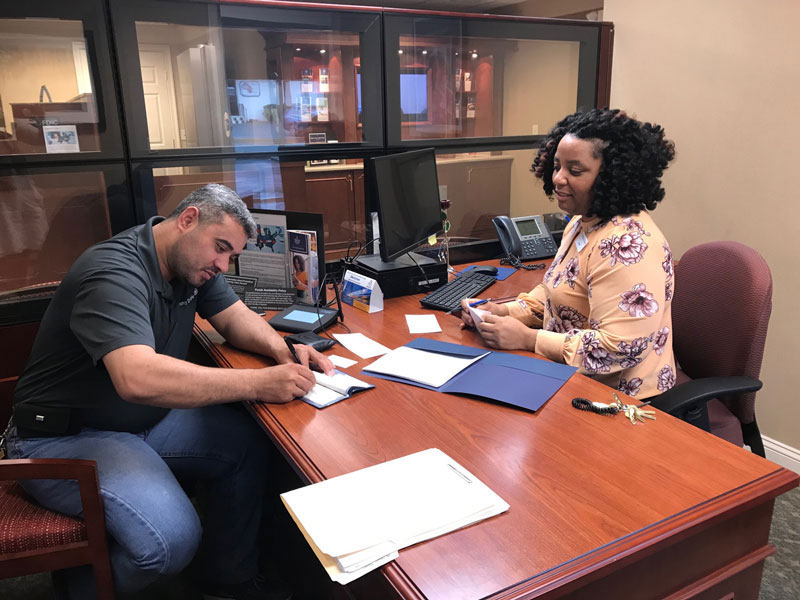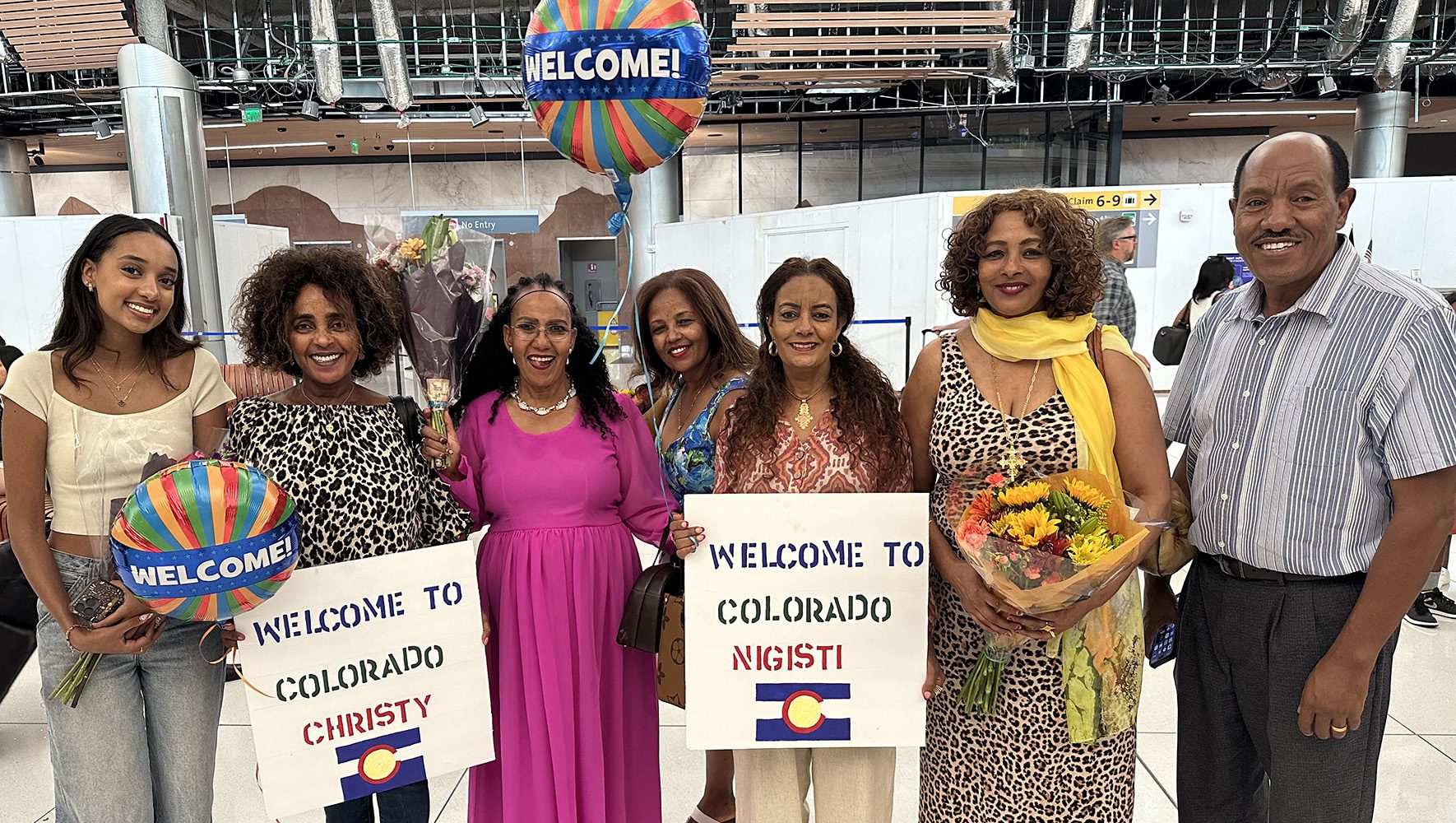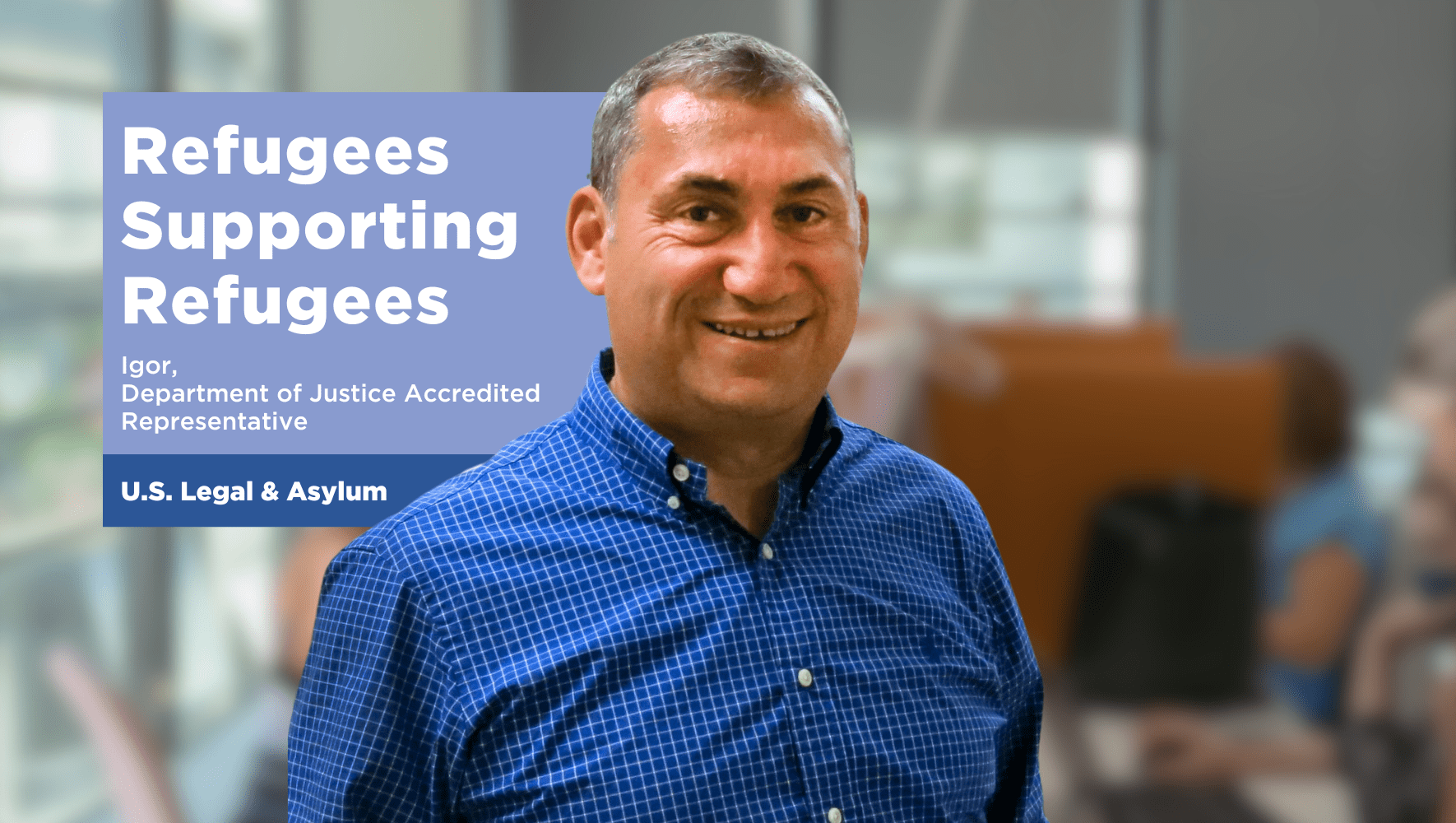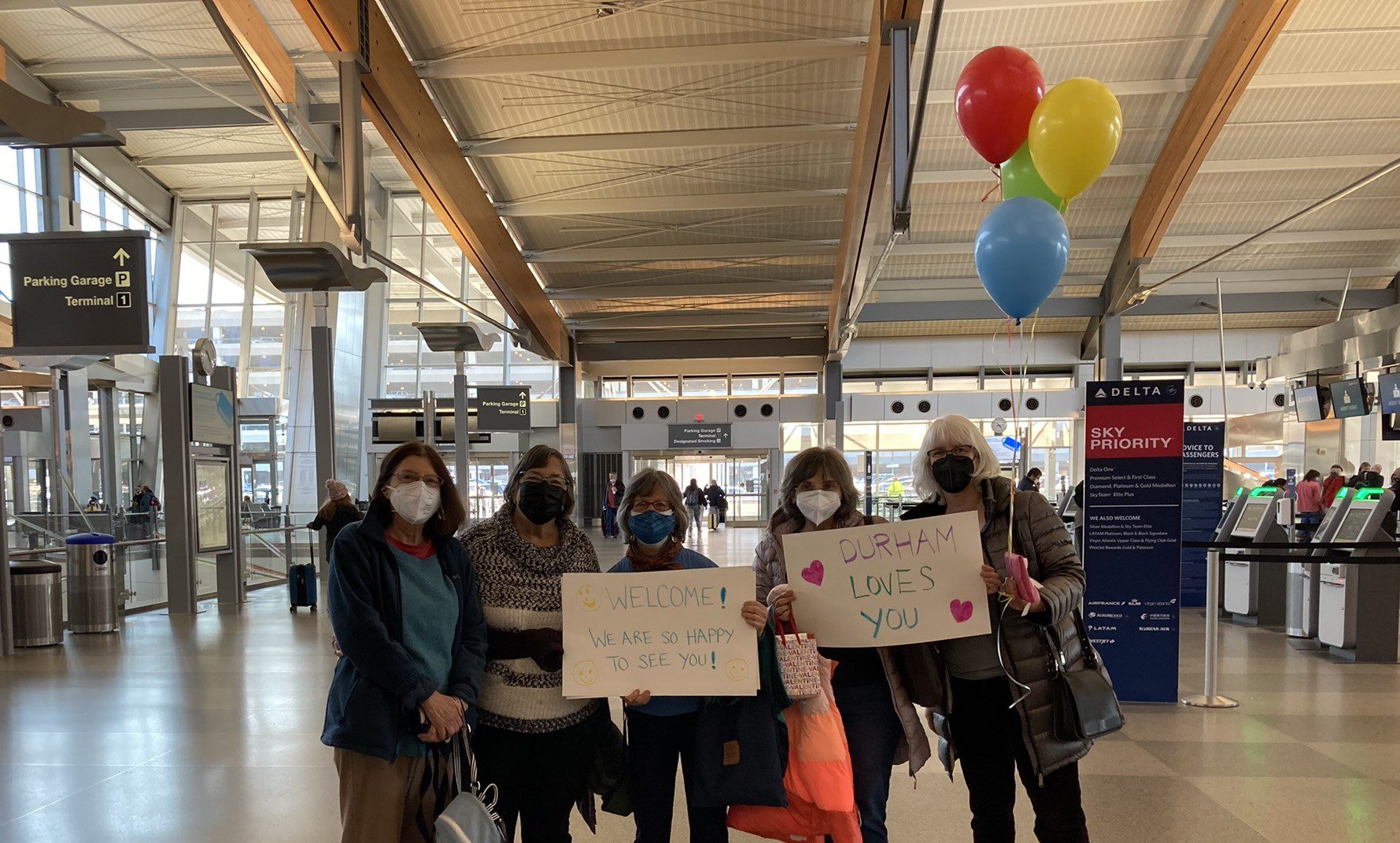HIAS Partners Find Ways to Stay Connected to Clients During Pandemic
By Sharon Samber, HIAS.org
Apr 28, 2020

Before the pandemic: Kasem (L), a recently resettled refugee, opens an account at South State Bank in Charlotte, N.C. with the help of a bank representative. Kasem is saving to purchase a home.
(Carolina Refugee Resettlement Agency)
One of the most important aspects of helping refugees start their new lives in the United States is face-to-face interaction with the local case managers who are among the first people they meet upon their arrival. Whether it’s greeting them at the airport, stocking new apartments with familiar foods, or showing how the bus works, the close hands-on support received during those first few months is vital.
Now, as the country continues to struggle through the COVID-19 pandemic, social distancing forbids working together in the usual manner and many refugees are having trouble adjusting to their new lives. Nevertheless, the resettlement agencies in the HIAS affiliate network across the U.S. are finding ways to stay connected with their clients and help them get settled to life in America.
“The level of adaptability going on across the network by clients and by staff is extraordinary,” said Alicia Wrenn, HIAS’ senior director of resettlement and integration.
The whole framework in the U.S. resettlement system depends upon early employment, explains Wrenn, and the expectation that clients will start to support themselves within months of their arrival. As of March 30, 430 refugees have arrived and been placed in the HIAS affiliate network this year, with an additional 420 arriving through the Special Immigration Visa program.
In Pittsburgh, staff at Jewish Family and Community Services (JFCS) are worried about eight recently resettled families, mainly Congolese and Afghani, who haven't been able to complete the usual initial steps: a check-up at the doctor, visits to the social security office, and opening a bank account.
So many refugees are having difficulties, said Leslie Aizenman, JFCS’ director of refugee and immigrant services. Refugees who have been in the U.S. for long enough to get jobs have seen their start dates pushed back or the jobs put on hold. About 85 percent of those who had found jobs have been laid off, Aizenman said, and it is unclear which unemployment benefits they can claim. Some have found themselves suddenly needing food stamps.
“I want families to be safe with a roof over their heads and food on the table, and then we'll move on,” Aizenman said. JFCS operates a small food pantry and is connecting refugees with other local food pantries; the agency also is looking for emergency funding and trying to access more cash assistance.
“Refugees are not forgotten,” Aizenman said, noting support from city and county service agencies and the Immigration Services and Connections (ISAC), a five-agency partnership headed by JFCS.
For people like John*, who was resettled in Charlotte, North Carolina last year from the Democratic Republic of Congo by the Carolina Refugee Resettlement Agency, the potential impact on long-term plans is disconcerting. John is participating in the Individual Development Account, a government-administered grant program that helps refugees save toward an asset that will help increase financial independence. He is saving up to buy a car so he can commute to work and hopefully take higher-wage jobs in the future.
Rebecca Kurtz, CRRA’s program coordinator, is worried not only about how refugees like John will achieve their goals but also how others will have enough cash to pay next month’s bills. But she has been impressed at the flexibility and determination of many of her clients.
“They are the experts on having patience and how to see things through,” she said.
One case manager told Kurtz about a Bhutanese client who explained how difficult social distancing can be. In the client’s culture when someone is sick everyone goes to the “sick house,” but the case manager had to tell everyone to do the opposite.
US Together, a HIAS affiliate with offices in three cities in Ohio, has turned to phones and computers to keep its clients informed and continue building their skills. It is also offering English as a Second Language, financial literacy, and job-readiness courses via Skype.
Nadia Kasvin, US Together’s co-founder and director of the Columbus office, says her staff works with partners to provide simultaneous interpretation of the governor’s press conferences for the Spanish-speaking community. She knows there have been numerous times when staff has had to pivot and work things out differently.
Maha Malik, one of the case managers at US Together in Toledo, has been working with a Iraqi refugee family of four since their arrival on February 21. The family’s two children, ages 6 and 10, are supposed to be finishing the school year through e-learning but local internet providers require a valid social security number to set up service. Because of COVID-19 the processing for the family’s social security cards was delayed. Malik was able to contact the children’s school and have the school principal contact the internet provider and explain the situation. Now, internet services will be free for the family for the duration of the pandemic.
Despite all the challenges, CRRA’s Kurtz sees at least a couple of silver linings. One of her organization’s group classes may work better online than in person and a local bank has streamlined the process for opening savings accounts through their drive-thru window.
“We will learn things out of this,” Kurtz said.
Setting up remote systems for things like medical and mental health services or peer support groups is crucial, said Wrenn, and that work will continue.
“It has been a great challenge but we are making progress,” she said.
*Last names omitted for clients’ protection.





